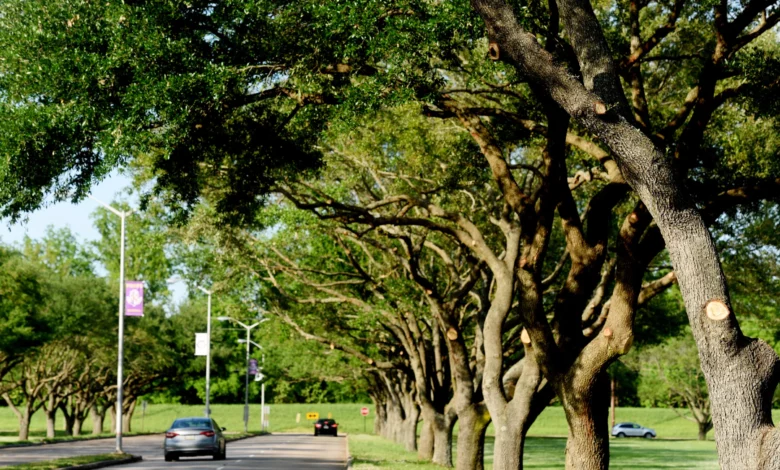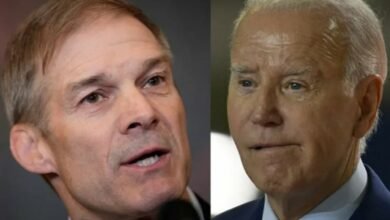
An LSU Shreveport professor says the administration’s attempts to fire him are an attack on his First Amendment right to free speech. University administrators contend the professor has become disruptive to the point it’s interfering with how they run the campus.
Brian Salvatore, a tenured chemistry professor and longtime LSU Shreveport Faculty Senate member, found himself the target of a human relations investigation after fellow senators complained language Salvatore used in separate correspondence with them was “intimidating and threatening.”
Salvatore said the reason behind his attempted ouster involves his reminders to the Faculty Senate when they violate the state’s public meetings law.
At the core of the issue is that Salvatore’s speech has affected the efficiency of the university by disrupting Faculty Senate meetings, Provost Helen Taylor said at an on-campus termination hearing Monday.

“This isn’t about freedom of speech. This is about the disruption of shared governance,” Taylor said at the hearing, who added that when shared governance breaks down, the administration doesn’t have the means to run the university.
The shared governance model of higher education delegates certain powers, primarily those dealing with academics, to faculty. Most universities divulge little authority to faculty senates.
“We got to the point where shared governance was unsustainable,” Taylor added.
In September 2023, LSU Shreveport Staff Senate President Matthew Culpepper reported Salvatore to human resources after a phone call in which Salvatore informed Culpepper his group was not in compliance with public meetings law. Salvatore informed Culpepper he would go to the state attorney general if the group did not comply with the law. Culpepper took Salvatore’s remark as a threat, but Salvatore contends he was trying to protect the university.
Louisiana’s open meetings law protects citizen’s right to know what public bodies are doing. Faculty and staff believe their senates are vital to the functioning of a university but are at times reluctant to comply with the law. Several attorneys general — the public official designated by law to handle public meetings compliance — has opened investigations into violations by faculty senates. Courts can invalidate actions made during meetings of public bodies when they do not comply with the law.
In October, Salvatore had a similar conversation with Faculty Senate President Cassandra Williams. He warned Williams that, as an assistant professor who had not yet been awarded tenure, violating the open meetings law could harm her prospects for earning it.
Williams reported Salvatore to human resources, alleging he was threatening to negatively influence her tenure process. Williams is in a different college than Salvatore, meaning he would play no role in granting her tenure.
The university subsequently opened an investigation into Salvatore related to these warnings, finding Salvatore’s “choice of language and accusatory tone were intimidating and threatening.”
Helen Wise, who presented the university’s case as Monday’s hearing, pointed to an October 2023 Faculty Senate meeting in which Salvatore nominated himself for secretary but couldn’t get any of his colleagues to second the nomination. That’s proof Salvatore had little support among his colleagues, Wise said.
Salvatore was deep into his second term on the faculty senate, indicating he had support from the math and science professors in his department whom he represented in the senate.
Wise charged that Salvatore created a toxic environment in the senate, pointing to a letter sent on behalf of several School of Liberal Arts department chairs to Faculty Senate leaders. The letter said liberal arts senators were considering resigning unless the working environment in the senate improved.
Salvatore pointed out the letter did not mention him or anything he did or say, arguing it was a stretch to attribute the adverse conditions to his actions without evidence.
The administration’s presentation at Monday’s hearing painted Salvatore as an irritating presence in the senate but did not provide proof of how he prevented the university from operating efficiently.
LSU Professor Kevin Cope, a longtime officer of the Louisiana Conference of the American Association of University Professors (AAUP), a professional organization dedicated to academic freedom on university campuses, said faculty senates, one of the branches of shared governance, are vital to the running of any university. He doesn’t believe the LSU Shreveport administration shares that value.
“It is true in my opinion that faculty governance is important to the running of the university,” Cope said in an interview. “The LSU-S administration has always played down faculty governance and been openly hostile to it.”
Most of the charges against Salvatore were unrelated to his role as a faculty senator, something Timothy Shaughnessy, chair of the hearing committee, pointed out. Instead, they were about statements Salvatore contends are protected speech — speech the administration finds objectionable.
Salvatore is an outspoken environmental advocate. Much of his advocacy has centered on open-air burn pits at the Clean Harbors waste disposal facility in Colfax, advocacy that Wise praised.
“This is not about Dr. Salvatore’s efforts on the environment or his good work at Camp Minden,” Wise said, referring to Salvatore’s focus on the disposal of military ammunition from Camp Minden at Clean Harbors Colfax.
Administrators said allegations Salvatore levied against the university regarding its use of Clean Harbors’ disposal services were false and defamatory.
In one social media post, Salvatore alleged then-university Chancellor Larry Clark was sending campus hazardous waste to be burned at Clean Harbors Colfax, blaming Clark for the negative health consequences of neighbors. In another post, Salvatore said Clark sends waste to Clean Harbors without specifying a location.
Salvatore deleted the first post when informed the university did not send waste to Colfax but left the other one up. He claims the LSU System has a waste disposal contract with Clean Harbors, and he said he saw a Clean Harbors truck on the LSU-Shreveport campus.
In response to other charges alleging false statements, Salvatore argued he has reason to believe he was telling the truth.
The faculty hearing panel will consider the evidence and make a recommendation regarding Salvatore’s employment to LSU-S Chancellor Robert Smith. LSU System President William Tate and its board of supervisors must also sign off on Smith’s decision.
Cope said even if any of the 13 charges against Salvatore were proven true, they would not be enough to justify firing a tenured professor. Cope noted the LSU System is under two AAUP censures, which are given to universities in violation of principles of academic freedom or tenure.
Firing Salvatore puts the system at risk of being issued a first of its kind third censure, Cope said. That status could potentially harm the university’s ability to attract faculty.
— The Louisiana Illuminator is an independent, nonprofit, nonpartisan news organization driven by its mission to cast light on how decisions are made in Baton Rouge and how they affect the lives of everyday Louisianians, particularly those who are poor or otherwise marginalized.




